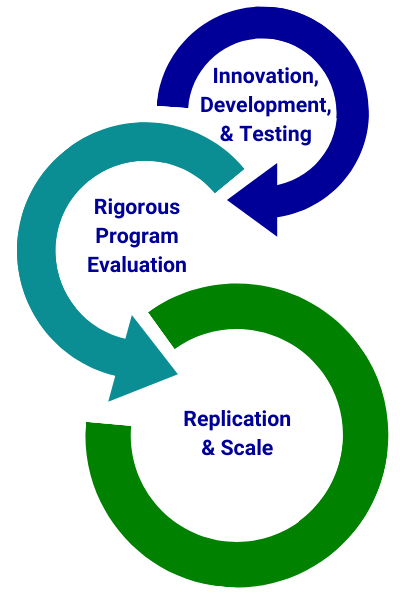Translating Research into Practice

Rigorously evaluated programs that demonstrate positive outcomes are eligible to be implemented by TPP grant recipients in communities with the greatest need.
The HHS Office of Population Affairs' (OPA) Teen Pregnancy Prevention (TPP) program is a national, evidence-based program that funds diverse organizations working to prevent teen pregnancy across the United States. OPA funds the exploration, development, testing, and rigorous evaluation of new and innovative interventions to significantly reduce teen pregnancy disparities and advance the field of adolescent sexual health. Investing in teen pregnancy prevention programs helps adolescents reach their full potential. Connecting youth to services and opportunities can help prevent teen pregnancy.
OPA funded the development and rigorous evaluation of TPP programs to expand the available research and evidence base in the field of teen pregnancy prevention. OPA’s TPP Tier 2 grant recipients develop, replicate, refine, and rigorously evaluate programs and innovative strategies to reduce teen pregnancy.
These TPP programs address gaps in the existing evidence, reduce disparities in teen pregnancy and associated sexual and reproductive health outcomes, and/or serve diverse communities. Individually, these TPP programs provide new research on specific types of innovative practices (e.g., using technology to deliver information, joint family programming) or specific populations and settings (e.g., rural areas), which can support in TPP programming. As a collective, these programs and the evaluation results further emphasize OPA’s contributions to the TPP field.
 An official website of the United States government
An official website of the United States government





